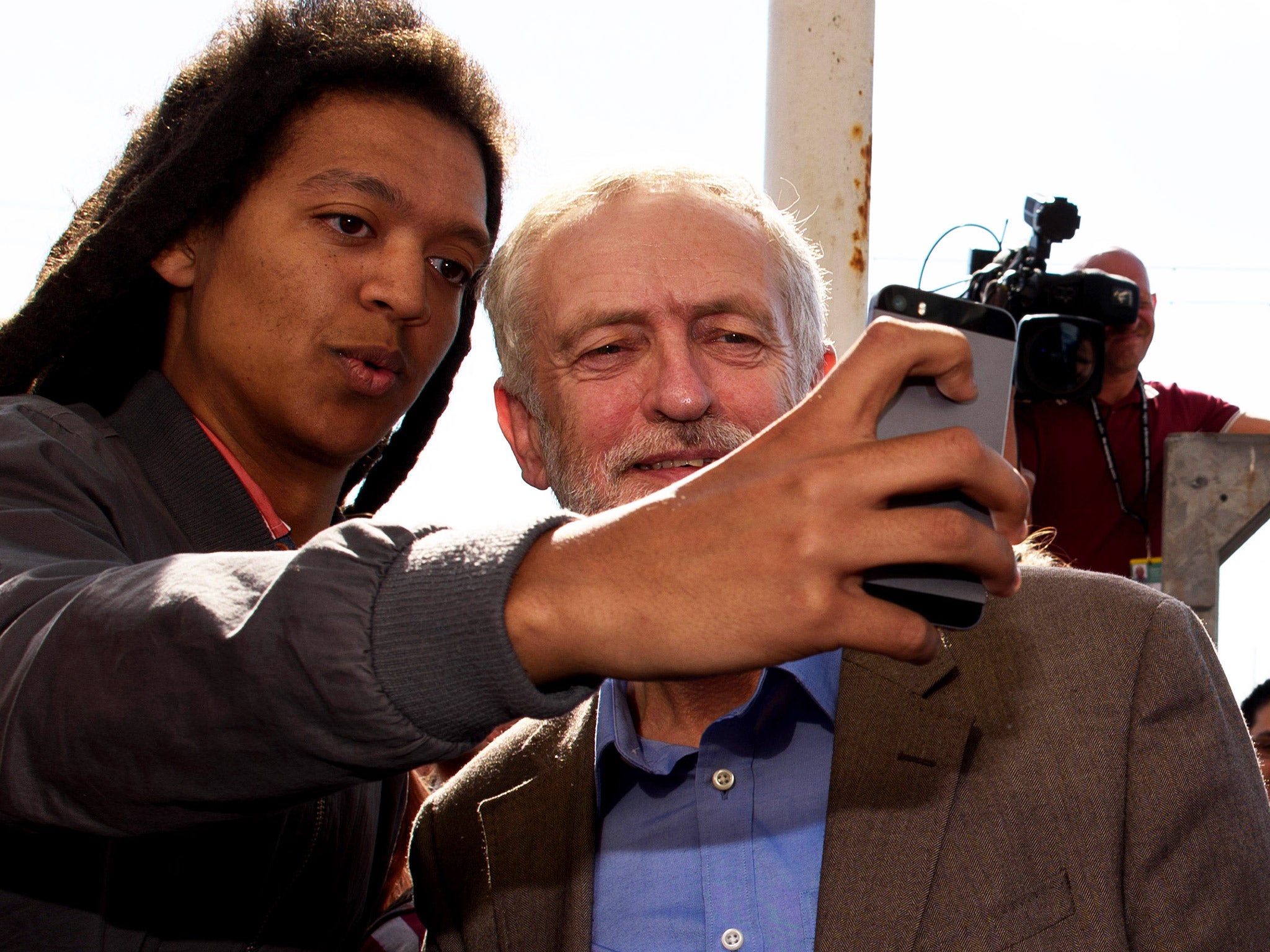Jeremy Corbyn speech: Mobilising young voters will be vital – but it is not enough
Even if Labour held on to everyone who voted for them, it is unlikely to win the next election on the back of the non-voters


Your support helps us to tell the story
From reproductive rights to climate change to Big Tech, The Independent is on the ground when the story is developing. Whether it's investigating the financials of Elon Musk's pro-Trump PAC or producing our latest documentary, 'The A Word', which shines a light on the American women fighting for reproductive rights, we know how important it is to parse out the facts from the messaging.
At such a critical moment in US history, we need reporters on the ground. Your donation allows us to keep sending journalists to speak to both sides of the story.
The Independent is trusted by Americans across the entire political spectrum. And unlike many other quality news outlets, we choose not to lock Americans out of our reporting and analysis with paywalls. We believe quality journalism should be available to everyone, paid for by those who can afford it.
Your support makes all the difference.In his first conference speech as Labour leader, Jeremy Corbyn was in effect saying that he is going to stand for what he believes in and hopes to bring people to the party, rather than the party to the people.
He will undoubtedly target non-voters, who were a significant group in the last election. One-third of the population did not vote, with the official turnout at 66 per cent.
“We will work with Labour councils across the country to get people back on the registers,” he said. It would be hard work, he admitted, but he said it could be done with the help of social media and a freshly swollen membership. “Conference, let’s get to it. Get those people on the register to give us those victories but also to get fairness within our society.”
66%
Turnout at the General Election
However, even if the party held on to every single person who voted Labour last time, it is extremely unlikely to win the next election on the back of the non-voting group alone.
It is probably true that if those people did turn up to the polls, they would be more likely than the population in general to vote for the Labour
Party. This is simply because the party is now relatively strong among younger people, and younger people are disproportionately counted among the non-voters.
Other non-voters, while a pretty diverse bunch, are united by the fact that they are not terribly interested in politics, rather than by the thought that there is not a sufficiently left-wing political alternative.
That’s true except in Scotland, where the Labour Party lost heavily. North of the border SNP voters are definitely on the left and they think Labour is too right wing.
Another group of voters went to Ukip, primarily because they are concerned about immigration; so Mr Corbyn’s liberal line on that will not go down well with that group, although his anti-establishment rhetoric might win them over a little.
The third group Labour lost in May are those who went over to the Conservatives; for these, Labour’s perceived lack of economic leadership was particularly, although not uniquely, important.
Mr Corbyn seems to be hoping to cajole them to go with him, in a strategy not too dissimilar to Margaret Thatcher’s. He appears to presume that, if he presses the right buttons, he will be able to persuade voters that their hearts lie with Labour after all – and that he is the man to win them over.
Among his own party, this speech was good enough to ensure that he will be unchallengeable until at least next year’s elections and beyond. He’s saying a lot of things that people in the hall like to believe, and he grew in confidence.
You could argue that in some ways it was better than Ed Miliband’s performances, certainly in terms of his ability to hold the audience in front of him, and he grew in confidence.
Now, if only he could learn to tie a tie.
John Curtice is professor of politics at Strathclyde University
Join our commenting forum
Join thought-provoking conversations, follow other Independent readers and see their replies
0Comments